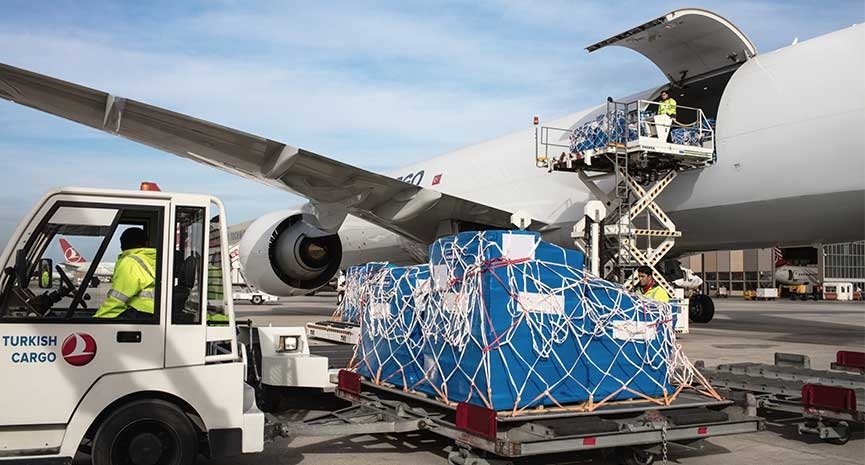Turkish Cargo to fly its entire fleet of 25 freighters to keep trade moving
Turkish Cargo will start to serve for cargo transportation purposes by making use of the aircraft available in its fleet, in addition to its current cargo freighter capacity, which was increased to 25 from 13 during the last four years.

March 20, 2020: Turkish Cargo is increasing the frequencies of its flights, operated by freighters to compensate for any loss of capacity due to Covid-19 (coronavirus). Turkish Cargo will start to serve for cargo transportation purposes by making use of the aircraft available in its fleet, in addition to its current cargo freighter capacity, which was increased to 25 from 13 during the last four years.
This follows the International Air Transport Association's (IATA) appeal to the governments to exclude air cargo operations from any Covid-19-related travel restrictions, to ensure life-saving medical products can be transported without disruption.
Like many other carriers, it has also witnessed cargo transportation capacity onboard the passenger aircraft significantly narrowing down due to the travel restrictions across the globe and the decrease in customer demand. The carrier is planning to fly its 6th freighter fleet, so as to utilise all of the freighters in its fleet in full capacity for the purpose of meeting all requirements of the exportation in Turkey as well as the foreign trade that is of critical importance.
The carrier is continuing to serve as the solution partner for the Turkish manufacturers and exporters by also complying with the restrictions imposed by the national authorities and the precautionary practices implemented by the ministry of health of the Republic of Turkey.
Arranging air cargo operations to more than 300 destinations, 90 of which are the cargo destinations, in 127 countries around the world, Turkish Cargo offers services with its fleet of 360 aircraft, 25 of which are the freighters at its hub in Istanbul that connects the continents to each other and has strategic importance. Its fleet consists of 4 B747-400Fs, 8 B777Fs, 10 A330-200Fs, 1 A300-600Fs, and 2 A310-300Fs.
Other airlines that are contributing to keeping the global supply chain functioning are American Airlines and Lufthansa Cargo, which are mulling to fly passenger aircraft as pure cargo aircraft; FedEx; and Etihad Cargo.


